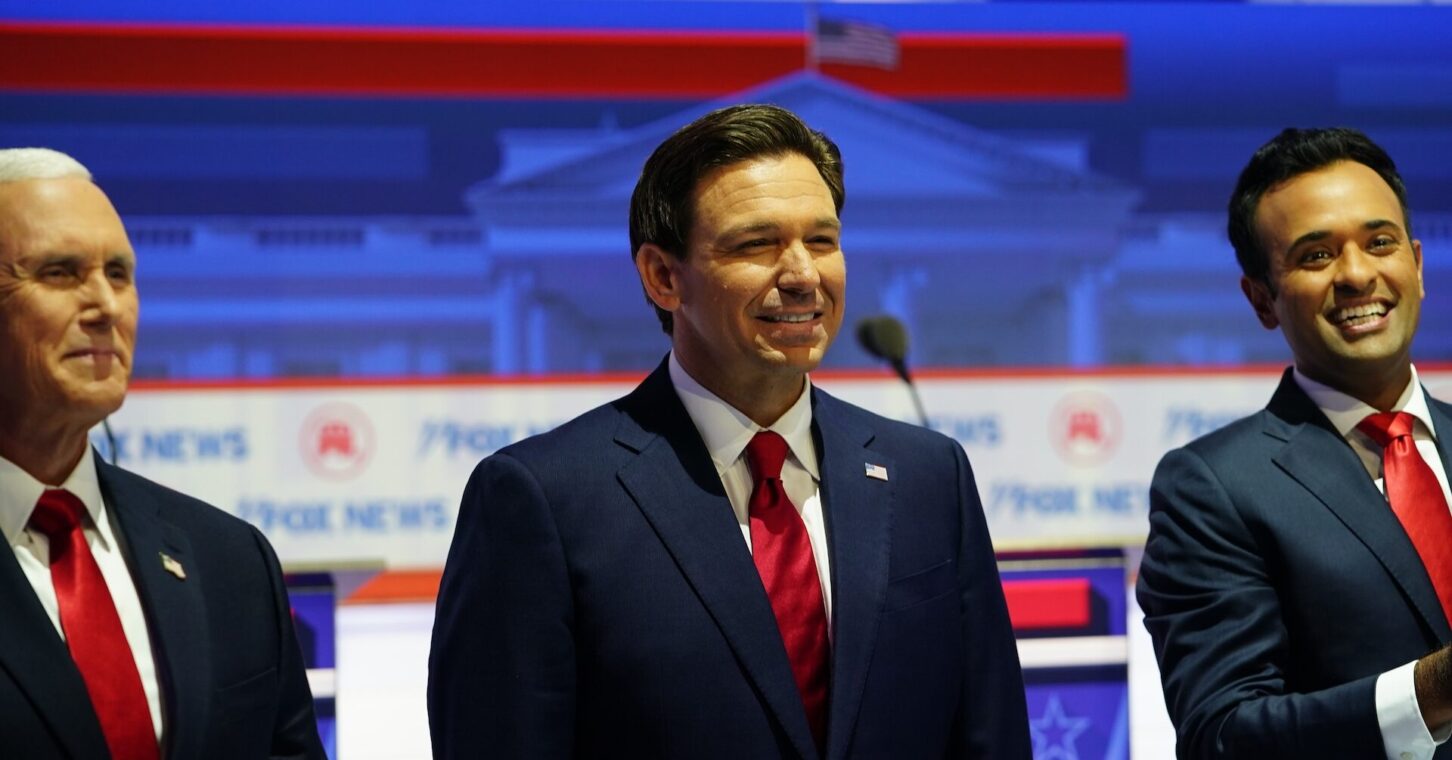
Ever since the U.S. Supreme Court returned the issue of abortion to legislators last year, Republicans have come under fire for not being up to the task presented by the ruling. Specifically, they’ve been criticized for being unprepared to talk about it in a persuasive manner – after half a century of demanding that the court give them the opportunity.
It might be an unpopular opinion, but I thought the way GOP presidential candidates tussled over abortion in their recent debate represented not only the right way for conservatives to argue about that issue, but a model for other issues.
That is, they ought to sort out which aspects, if any, of the thorniest policy questions ought to be handled federally as opposed to the state level.
Former South Carolina Gov. Nikki Haley gave the first response about abortion, challenging her fellow candidates to “be honest with the American people” about the unlikelihood of a federal ban given the need to win 60 votes in the Senate. But it was Florida Gov. Ron DeSantis who first (if obliquely) raised the matter of leaving it to the states.
“I’m going to stand on the side of life,” DeSantis said. “Look, I understand, Wisconsin is going to do it different than Texas. I understand Iowa and New Hampshire are going to do different. But I will support the cause of life as governor and as president.”
Former Vice President Mike Pence disagreed, calling instead for “a minimum standard in every state in the nation” pegged to the unborn child’s ability to feel pain.
“When the Supreme Court returned this question to the American people, they didn’t just send it to the states only,” said Pence, who is also a former governor of Indiana. “It’s not a state’s only issue. It’s a moral issue.”
But abortion – like many issues – encompasses not only political realities and moral imperatives. It also has a constitutional dimension, which North Dakota Gov. Doug Burgum cited in opposing a federal abortion ban.
“And the reason why we shouldn’t is very simple, it’s the 10th Amendment in the Constitution,” Burgum said. “In the Constitution – which the states created the federal government, not the other way around – it says that there were certain duties allowed to the federal government delegated to them by the states. The rest are left to the states, or importantly, to the people.”
However one feels about abortion, that’s exactly the right framework for thinking through many controversial issues – from the culture wars in education, to healthcare access and affordability, and many others.
It’s time for those who support limited government, and in particular a federal government limited to its proper role, to support a return to the appropriate division of labor between Washington, D.C., and the states.
This is a nation of more than 330 million people. Trying to set policies that apply uniformly to all of us, with our wide range of opinions and even circumstances, is not only unwieldy; it’s a recipe for aggravating our tribal, polarized politics.
There’s enough controversy in deciding how a central government should handle its proper duties, such as foreign relations and immigration. Asking the same elected officials to also handle a wider array of topics than necessary only makes it more difficult for them to do the work actually entrusted to them.
Ultimately, that’s why the system of federalism created by the Constitution is not an ideological concept but a pragmatic one. Handling as many controversies as possible at the level of government closest to the people is the way to settle them, not maintain a permanent uproar.
The only people who get a worse rap nowadays than the current crop of politicians may be our Founding Fathers. But they knew what they were doing, and their governmental design has brought us this far.
It can take us even further, if we’ll only get back to using it.